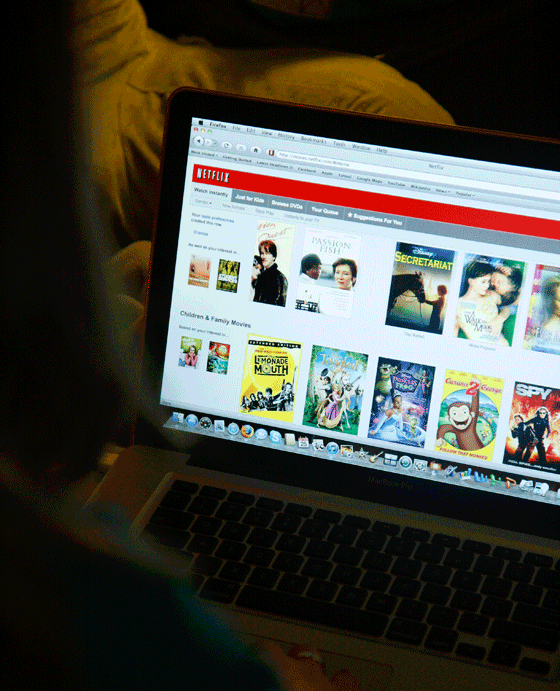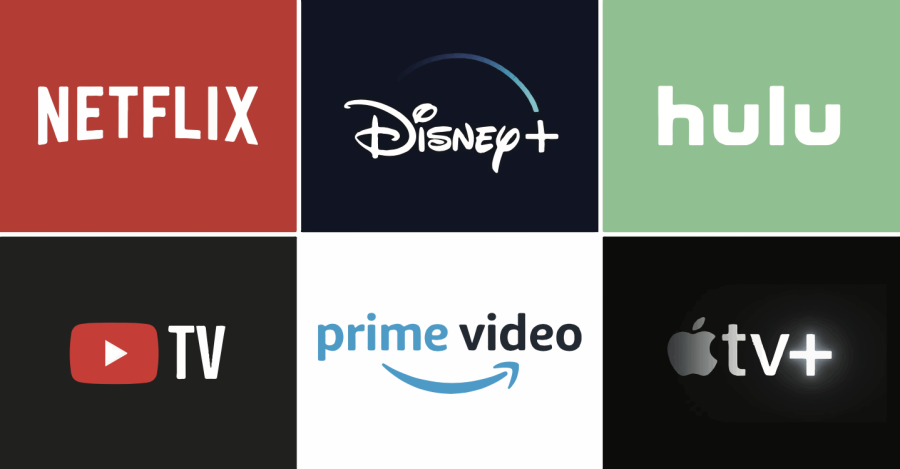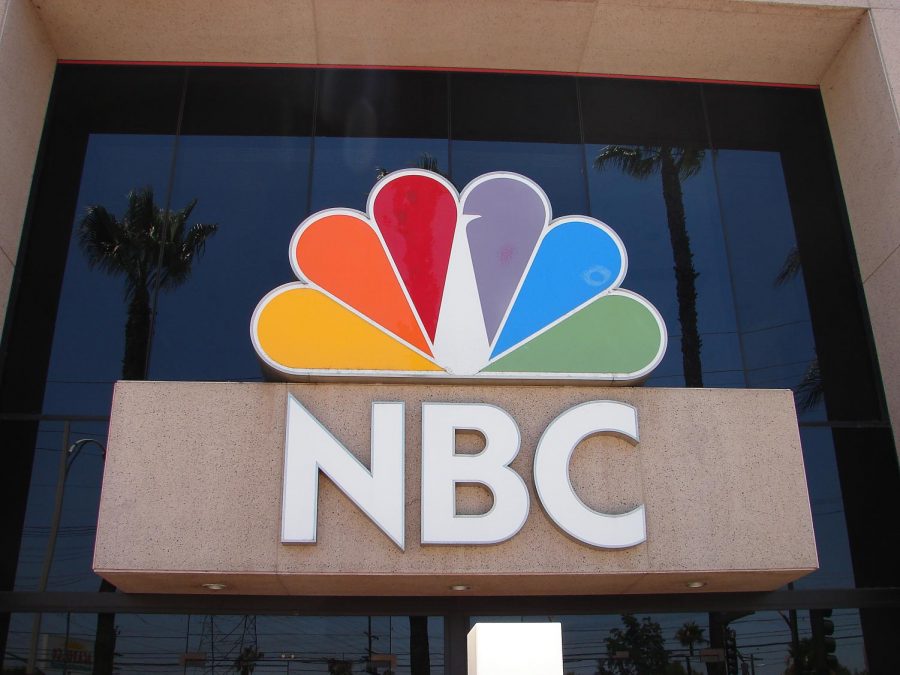TV Shows and movies are expensive. The $7.99 price you pay monthly for Netflix may give a false impression, but the entertainment industry is much more complicated than that. Every movie, documentary or TV show ever produced attempts to maximize its profits. This means that the selling of rights or systematic content distribution is carefully thought out.
A few years ago, the best strategy would have been to attract large audiences to movie theaters to keep the movie on the big screens for the longest amount of time possible. Another popular strategy would have been to sell DVD or Blu-ray versions of that title.
Today, online streaming companies seem like the most popular option to viewers and to the entertainment industry as a whole. The business aspect of movie distribution dictates which companies get to stream which titles, the exclusivity of rights sold and the profit of specific companies. Simply put, it determines what ends up on your computer screen.
Hulu
Hulu is an American company founded in 2007 that offers a selection of titles for free on its website and an even broader variety with the Hulu Plus subscription service.
In just one year, the company’s revenue increased by half a billion dollars, breaking the billion-dollar mark in 2013. According to Advanced Television, Hulu has also spent 67 percent more this past year, acquiring content and producing Hulu-originals, such as “Quickdraw.”
Since 2012, Hulu began spending millions to bulk up its library options. In 2012, Hulu started exclusively airing British show “Misfits” for its American audience. In December 2014, Hulu snatched exclusive streaming rights to “South Park.” Also that year, Hulu struck a deal with MGM and secured exclusive rights to “Fargo,” two seasons of “Vikings” and more than 1,500 episodes from the MGM catalog.
In the beginning of the year, Hulu’s latest deal involved acquiring exclusive video-streaming rights to “Empire.” The entire first season of the show is now on Hulu Plus, but the deal also secures all future seasons of the series.
Amazon Instant Video
Amazon Instant is an internet-based video-on-demand service developed by Amazon and released in 2006. It offers thousands of titles for purchase or rental, but it is free to all Amazon Prime customers.
In the past few years, it has become increasingly popular and become a tough competitor for Netflix. In 2014 alone, Amazon spent $1.3 billion in order to expand its library and offer an increasing amount of exclusive (and original) content. With an Amazon Prime membership growth of 53 percent in the past year, that cost seems insignificant when compared to Amazon’s total revenue of about $88 billion, as highlighted by MarketWatch.
In 2013, Amazon Prime bought exclusive streaming rights for “Downton Abbey,” followed by a deal in 2014, which guaranteed the company exclusive streaming rights for “Teen Wolf.” Competitors Hulu and Netflix previously had streaming rights to both shows, which means the deal definitely dealt some damage to both movie-streaming giants.
Amazon has also stayed competitive by beginning to offer original content, including “Transparent” and “Alpha House.”
Sony
Sony has recently joined the video-streaming industry with PlayStation Vue. The service, which will cost between $50 and $70 per month, is only available to PS3 and PS4 owners in specific areas within the United States. Being extremely overpriced and focused on a narrow market, however, will probably hinder any of Vue’s chances for success.
Sony remains a major company in the entertainment industry, nonetheless. The company sells movie rights to most of the streaming giants, such as Netflix. Just recently, the company profited $40 million by selling streaming rights for “The Interview,” which is also available on Netflix, says Deadline.
Netflix
How could we not mention the streaming giant and on-demand sweetheart, Netflix? Netflix is a movie-streaming pioneer, founded in 1997. The company provides the largest selection of titles available on-demand and has an average of 50 million subscribers globally.
With popularity on its side and an average yearly revenue of almost $5 billion, Netflix has enough purchasing power to secure its spot as the king of video streaming worldwide, according to MarketWatch.
Netflix is probably the streaming company that spends the most with purchasing streaming rights. The Verge reports that in 2014, Netflix acquired the streaming rights to “The Blacklist” for $2 million per episode, as well as the rights for “Gotham,” estimated at $1.75 million per episode (before it even aired). Furthermore, Netflix has a three-year-old deal with Disney, which secures exclusive streaming rights of Disney movies, for a cost of about $350 million per year, estimates the New York Post. Don’t forget that Disney is no longer just about princesses and jolly adventures. For instance, Disney recently bought Lucasfilm, best known for the film series Star Wars and Indiana Jones in 2012.
However, one of Netflix’s most unique characteristics is the interest in creating extensive original content, such as “Orange is the New Black,” “House of Cards,” and “Marco Polo.” According to Business Insider, “Marco Polo” is estimated to be one of the most expensive shows ever, costing around $90 million to produce a single ten-episode season. Furthermore, Netflix spends around $5 million per episode for both HoC and OitNB.
And Netflix doesn’t plan on slowing down any time soon. It spends around $2 billion each year on acquiring new content, breaking a record of a $3 billion expense in 2013. Business Insider also reports that Netflix is committed to spending over $6 billion over the course of the next two years.
_______________________________
This business requires that streaming services such as these continue adding on to its respective library. Clearly depending on the popularity of a particular show or movie, companies are willing to spend huge amounts of money to secure exclusive streaming right. Of course, the cost for buying streaming rights is often not much in comparison to how much the company makes.
Finally, it seems that competition triggers the need to expand on-demand libraries, but also to have companies fight for exclusive rights. Exclusivity is key in a business as competitive as the entertainment industry and the reason why many of us choose one on-demand service over another.
_______________________________
The movie-streaming Giants’ battle:
Between Netflix, Amazon Instant Video and Hulu, which company is ahead?
| Netflix | Amazon Instant | Hulu | |
| Price | ♔ | ||
| Supported Device | ♔ | ||
| Interface / User-Friendly | ♔ | ||
| Mobile Applications | ♔ | ♔ | |
| Audio and Video Quality | ♔ | ||
| Amount of Content | ♔ | ||
| Release Date | ♔ | ||
| Original Content | ♔ | ||
| Subtitle Options | ♔ | ♔ | |
| Advertisement Free | ♔ | ♔ | |
| Discounts | ♔ | ♔ |
Winner: Netflix
Netflix is the undisputed king of the streaming world. Today you have several options online when it comes to on-demand video streaming.
Hulu and Amazon Prime offer many benefits that secure their spot in the industry. You should definitely consider taking advantage of Hulu Plus referral program to earn extra weeks for free or take advantage of Amazon Prime’s student discount.












